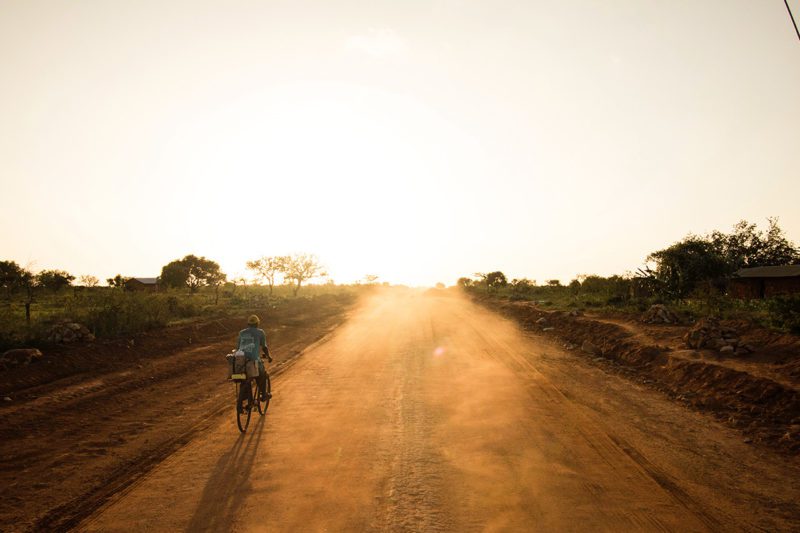Sovereign Seeds: Reclaiming MENA’s Agricultural Future
Reviving local food systems and unlocking rural prosperity
Unveiling the promise of the “Silicon Savannah”

Kenya is a leading destination for impact investing in Africa, with a growing number of investors looking to make a positive social and environmental impact while also generating financial returns. The country has a young and dynamic population, a strong economy, and a well-developed financial sector.
Kenya is home to a wide range of impact investment opportunities, across a variety of sectors, including:
The vibrant impact investing landscape in Kenya is marked by a high number of impact investment deals. Notably, 76 out of 111 deals across East Africa are in Kenya, according to recent data. Moreover, the market boasts of 136 impact capital vehicles managed by 95 private impact investors, highlighting the scale of the landscape.

Despite the opportunities, there are also some challenges to impact investing in Kenya, including:
In addition, Kenya’s high debt service constrains its public finance capabilities, which may limit the effectiveness of impact investing. Further, fragmentation remains an issue in Kenya’s financing networks, which can impede the efficient flow of capital.
The National Advisory Board for Impact Investing (NABII-Kenya) is a taskforce that has been established to help to coordinate and promote impact investing in Kenya. The taskforce is led by Arif Neky, the Senior Advisor for the UN’s Strategic Partnerships in Nairobi. The taskforce brings together a wide range of stakeholders, including investors, businesses, governments, and civil society. Arif Neky has played a pivotal role in creating an SDG partnership platform on top of the 24 UN agencies in Nairobi, a move that aligns with Kenya’s strategic focus towards SDG financing.
A crucial part of the role of NABII-Kenya is coordinating the efforts of Development Financial Institutions (DFIs), which are key players in the impact investing space. Intellecap’s study further underscores the unique nature of East Africa’s impact investing landscape, including Kenya’s, showing a higher concentration of DFIs compared to other regions such as West Africa and Asia.
The NABII-Kenya is working to address the challenges facing impact investors in Kenya, and to identify and scale up SDG-aligned investment opportunities. The taskforce is also working to build capacity among local businesses and organizations to manage impact investments.
The NABII-Kenya has been working with the Government of Kenya in supporting them in establishing Integrated National Financing Framework (INFF) for the financing of the SDGs. The INFF has completed a development financing assessment to leverage sources of financing and budget allocations, while helping to shift funding priorities and investment decisions of donors and private sector actors to align to the SDGs. There are seven key action items to initiate systemic changes in public finance to achieve the SDGs. Hence, the NABII-Kenya will be supporting the 7 approaches and the unlocking of private finance.
To boost the impact investing ecosystem, a variety of stakeholders, including the World Bank, have partnered with Kenya to support the creation of the Nairobi International Financial Centre (NIFC), aiming to foster growth in the sector. This move is designed to attract more international financial services and global fintech companies to the country.
 One of the recommendations for NABII-Kenya and impact investors in general is to take more risk by investing in a broader spectrum of Kenyan businesses, addressing the fact that a lot of the capital going into the impact investing ecosystem in Kenya is very concentrated. It’s noted that over 85% of the capital inflow went to less than 10% of the local businesses, usually male founders. This leaves the other businesses experiencing a dearth of capital. As Mr. Paul Clements-Hunt aptly puts it during an interview, “unless you are one of those hot sexy companies, one of the 10%, where the 85% of the capital is going to, people will not speak to you, and they will not move quickly, which is killing really good entrepreneurial businesses in East Africa and Kenya.”
One of the recommendations for NABII-Kenya and impact investors in general is to take more risk by investing in a broader spectrum of Kenyan businesses, addressing the fact that a lot of the capital going into the impact investing ecosystem in Kenya is very concentrated. It’s noted that over 85% of the capital inflow went to less than 10% of the local businesses, usually male founders. This leaves the other businesses experiencing a dearth of capital. As Mr. Paul Clements-Hunt aptly puts it during an interview, “unless you are one of those hot sexy companies, one of the 10%, where the 85% of the capital is going to, people will not speak to you, and they will not move quickly, which is killing really good entrepreneurial businesses in East Africa and Kenya.”
As a response to this, NABII-Kenya could strive to incentivize or even mandate a diversification of investments. Such a move would ensure capital is evenly spread and doesn’t just benefit a select few businesses.
Additionally, as mentioned by Ms. Kamika Yadav from Intellicap, blending of capital is further required in order to build and enhance the pipeline of the investment-ready businesses (i.e., deal flow), by providing better investment readiness technical assistance to the founders of these companies. This will also facilitate the expansion of the number of potential investees in Kenya as is already being done through the one-of-a-kind 2-day 10th Sankalp Africa Summit. This event is one of Africa’s largest inclusive development platforms focused on entrepreneurship and impact investing. The Africa summit held in Nairobi, Kenya, has witnessed thousands of stakeholders, entrepreneurs, investors, entrepreneur support organizations, and other sustainable development practitioners from across the ecosystem coming together to rally for the entire region, as this article similarly has tried to do in writing.
Kenya is a leading destination for impact investing in Africa, and the NABII-Kenya is helping to pave the way for even greater growth in the sector. The taskforce is working to address the challenges facing impact investors in Kenya, and to identify and scale up SDG-aligned investment opportunities. The taskforce is also working to build capacity among local businesses and organizations to manage impact investments.
The NABII-Kenya is a positive step towards making impact investing more accessible and effective in Kenya. The taskforce is working to address the challenges facing impact investors in Kenya, and to scale up SDG-aligned investment opportunities. The taskforce is also working to build capacity among local businesses and organizations to manage impact investments.
The future of impact investing in Kenya is bright. With the NABII-Kenya leading the way, Kenya is well-positioned to become a leading hub for impact investing in Africa.
Related Content
Comments
Deep Dives

Featuring
Clarisse Awamengwi
IE Correspondent
July 17 - 12:00 PM EST

Featuring
Russell McLeod
July 24 - 12:00 PM EST
RECENT
Editor's Picks
Webinars
News & Events
Subscribe to our newsletter to receive updates about new Magazine content and upcoming webinars, deep dives, and events.
Become a Premium Member to access the full library of webinars and deep dives, exclusive membership portal, member directory, message board, and curated live chats.
At Impact Entrepreneur, we champion fearless, independent journalism and education, spotlighting the inspiring changemakers building the Impact Economy. Diversity, equity, sustainability, and democracy face unprecedented threats from misinformation, powerful interests, and systemic inequities.
We believe a sustainable and equitable future is possible—but we can't achieve it without your help. Our independent voice depends entirely on support from changemakers like you.
Please step up today. Your donation—no matter the size—ensures we continue delivering impactful journalism and education that push boundaries and hold power accountable.
Join us in protecting what truly matters. It only takes a minute to make a real difference.
0 Comments